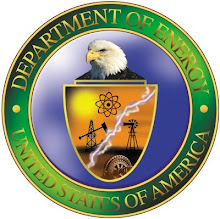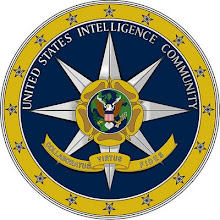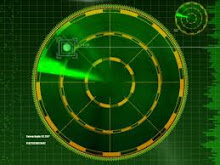By Steve Hammons
According to some researchers, over the past five decades or so the U.S. government may have been able to acquire advanced technologies from crashed, donated or otherwise obtained extraterrestrial vehicles.
It seems unclear if this could be true or if various kinds of exotic devices might also have been procured that could vastly enhance energy production, health care, aviation, space programs, manufacturing, electronics, engineering, agriculture and other economically-significant activities.
Reports about the UFO situation often note that one of the reasons for security on this matter was to obtain advanced technologies that could give the U.S. an advantage over adversaries and keep knowledge about them top secret.
Once obtained, these technologies were then possibly incorporated into the pipeline for application in highly-secure defense programs and other efforts.
The tight security was to ensure that adversaries did not obtain these advanced developments, as the story goes.
SECURITY AND PROSPERITY
If there is any truth to these types of tales, it seems to make sense. Just like other more conventional defense and business methods and products, maintaining security from competitors is a normal and natural position to take.
There are also accounts that claim some of these unconventional advanced technologies were discreetly inserted into certain U.S. companies for integration into our overall technological progress.
At this point – with the U.S. experiencing significant economic difficulties, our manufacturing and other businesses going overseas, our energy dependence sapping our wealth, and the challenges of shifting to new and more prosperous economic activities – it seems like a good time to reconsider the application and integration of any advanced technologies into mainstream U.S. economic activity.
Most people would probably agree that security related to national defense should continue to be of utmost importance. There is already a big enough challenge regarding weapons technology falling into the hands of dangerous people.
But, if there are benign technologies or devices that can enhance America and our friends, then shouldn’t we take reasonable steps to get them into the pipeline of economic development and innovation?
After all, the problems of pollution could be solved by cleaner energy. The costs of health care that are draining our economy might be mitigated by advanced knowledge about biology, genetics and cellular function. Agriculture could be enhanced by new understanding of botany. The list of possible benefits appears to be very long.
And, maybe most importantly, human intelligence and consciousness might undergo significant advances by greater understanding about ourselves and our capabilities.
SUCCESS AND PEACE
Discussions about these kinds of issues, though seemingly far-out, might actually involve very practical and down-to-Earth considerations.
Hypothetically, what would be the best way to integrate exotic technologies and knowledge obtained from or taught to us by extraterrestrial or other beings who are more advanced in some ways than what we are today?
How do we move from our current sociological, technological and economic positions, or predicaments, to the next level of human development in these areas?
Maybe we are actually facing this question now. Or, perhaps we might face it someday in the future. In either case, it seems like interesting food for thought to consider what the most intelligent steps might be.
Because our current economic situation is so difficult, and the public discussions about UFOs, extraterrestrials, expanded human consciousness, new scientific knowledge and similar topics are in the news, TV, movies, books and the Web, maybe a national debate about carefully and strategically releasing any acquired advanced technology could be a good idea.
If the U.S. is to continue to be a world leader and be prosperous at home, it seems obvious that we need to keep moving forward with many kinds of improved technologies, greater scientific knowledge and a more successful society for our people on multiple levels.
Combining what we can accomplish ourselves with what we can learn from others could help achieve greater prosperity, peace and successes of many kinds.
Thursday, September 30, 2010
Can UFO-acquired technologies help the U.S. economy?
Saturday, September 11, 2010
Public, media views evolving on UFOs, unusual phenomena
By Steve Hammons
The publication of the new book "UFOs: Generals, Pilots and Government Officials Go on the Record" by journalist Leslie Kean and the upcoming book "A.D. After Disclosure: The People's Guide to Life After Contact" by researchers and writers Richard Dolan and Bryce Zabel (slated for publication in October) have provided increased focus on this interesting topic.
There are many perspectives about possible visitation to Earth of intelligent beings from elsewhere. These viewpoints span a range of opinions, from people who think there is little reasonable evidence to those who conclude that there are very significant indications that this has occurred and is ongoing.
Kean has said, "We need a systematic, scientific investigation of the skies that actively looks for these mysterious and elusive objects."
Some researchers claim that such investigations have already occurred, are now underway and have been in motion since at least the post-World War II era, and possibly before.
The apparent discrepancy may be that such alleged investigations, conducted by the military and intelligence communities, including discreet special groups, have not been public research projects. Rather, they reportedly have been highly covert and classified due to an apparent serious level of sensitivity about the nature of the situation.
UNDER THE RADAR
Public perceptions of UFOs, extraterrestrials and other unusual phenomena are strongly influenced by movies, TV, books, journalism and other media platforms. Our own curiosity, imagination, hopes and fears also play important roles in how we think and feel about unconventional subjects.
But, apart from Hollywood portrayals and the incidents and reports we may hear or read about, what might be a reasonable way to deal with the possibilities about some of these unusual topics?
Some researchers consider the topics of UFOs, extraterrestrials, multiple dimensions, expanded human consciousness, space-time anomalies and similar subjects to be legitimate forward-leaning and leading-edge areas that should be examined thoroughly.
Why? Because credible research – based on what is being discovered and in pursuit of further knowledge – seems to indicate that these kinds of areas hold valuable information, understanding and insight for us.
Have some of these research efforts been under the radar of public view? This appears possible or probable.
Yet, due to a diverse range of researchers and investigative efforts, and possibly the intentional or inescapable diffusion of information from secret activities, the general public has become more aware of a variety of unusual developments.
In fact, decades-long public acclimation and preparedness initiatives, including an association with Hollywood and other elements of the mass media, could be part of such an interesting scenario.
ONGOING EDUCATIONAL PROCESS
Consider the case of the U.S. government’s research into extrasensory perception (ESP) in the 1970s, ‘80s and ‘90s that was later called Project STAR GATE.
Many average people, including those who were actually conducting some of the research, were highly skeptical about any human abilities that we generally call ESP.
But, after years of thorough research and operational activities in the intelligence field, it became clear that humans do have the potential for expanded perception and awareness, often referred to as a sixth sense.
Some scientists called it anomalous cognition. We might also name it advanced perception, alternative awareness, complementary cognition, enhanced instinct, integrated situational awareness or any number of expressive and descriptive terms. The conclusion: it is real and very significant.
However, during the initial decades of Project STAR GATE, this research was highly classified and top secret.
Now, it is widely read about and portrayed in various media. Former STAR GATE personnel have published books and offer training classes on “remote viewing” based on some of the methods and protocols that the military and intelligence people in the program developed.
Although many people haven’t had the opportunity to hear or read about it, the subjects of ESP and Project STAR GATE are public knowledge now, although certain activities and operations the project conducted remain classified.
Could it be that in coming days, other unusual and previously secret information will similarly become common knowledge?
Our readiness and preparedness to appropriately handle a new understanding of ourselves, the world around us and the vast Universe or multi-verse we live in will be important factors of this apparent ongoing educational process.



































































































































































































